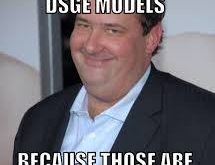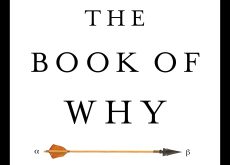Mein Herr und mein Gott [embedded content] Advertisements
Read More »Modern macro — a total waste of time
Modern macro — a total waste of time While one can understand that some of the elements in DSGE models seem to appeal to Keynesians at first sight, after closer examination, these models are in fundamental contradiction to Post-Keynesian and even traditional Keynesian thinking. The DSGE model is a model in which output is determined in the labour market as in New Classical models and in which aggregate demand plays only a very secondary role, even in the...
Read More »The Gray Ghost
[embedded content] For Tora and David, with whom, when they were just little kids, I spent hours and hours watching this series back at the beginning of the 90’s. They were my heroes then. They still are. Advertisements
Read More »Another dime in the jukebox
Another dime in the jukebox [embedded content] Advertisements
Read More »Gently weeping
[embedded content] Advertisements
Read More »Abba Lerner and the nonsense called ‘Ricardian equivalence’
According to Abba Lerner, the purpose of public debt is “to achieve a rate of interest which results in the most desirable level of investment.” He also maintained that an application of Functional Finance will have a tendency to balance the budget in the long run: There is no reason for assuming that, as a result of the continued application of Functional Finance to maintain full employment, the government must always be borrowing more money and increasing the national debt...
Read More »My first album
[embedded content] Advertisements
Read More »Collider bias (wonkish)
[embedded content] Advertisements
Read More »Birger Schlaug skärskådar Annie Lööfs ordblajande i DN
Birger Schlaug skärskådar Annie Lööfs ordblajande i DN Birger Schlaug gjorde igår en uppfriskande och njutningsfull närläsning av den Margaret Thatcher och Ayn Rand älskande Annie Lööfs DN-Debatt-artikel. Inte mycket blir kvar av politikerbroilern Lööfs tyckmyckentrutade mumbo jumbo. Tag och läs! Advertisements
Read More »Why data is not enough to answer scientific questions
Why data is not enough to answer scientific questions Ironically, the need for a theory of causation began to surface at the same time that statistics came into being. In fact modern statistics hatched out of the causal questions that Galton and Pearson asked about heredity and out of their ingenious attempts to answer them from cross-generation data. Unfortunately, they failed in this endeavor and, rather than pause to ask “Why?”, they declared those...
Read More » Lars P. Syll
Lars P. Syll




